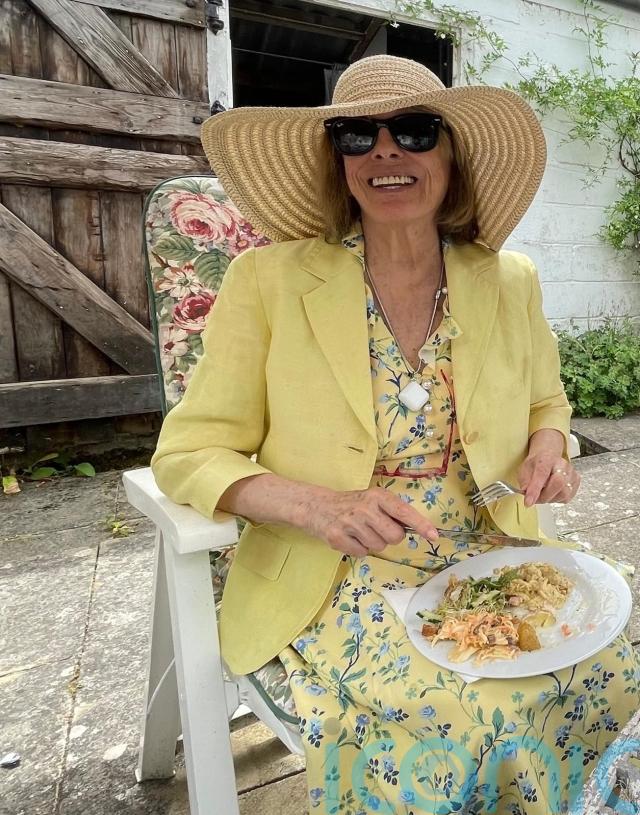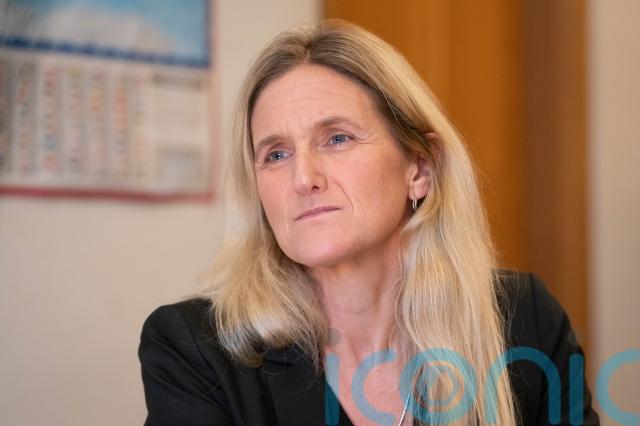
A Paralympian and House of Lords peer said she has been sent abusive emails accusing her of being “responsible for people dying in pain” amid her opposition to the assisted dying Bill.
Crossbench peer Baroness Tanni Grey-Thompson is among those expected to speak in a historic debate on Friday as the Terminally Ill Adults (End of Life) Bill returns to Parliament.
A long-time campaigner on the rights of disabled people, she said while it has been difficult to read some of the correspondence directed at her on what is a divisive issue, she accepts it is “part of the job”.
In an interview with the PA news agency, she said: “I’ve had emails, people saying, ‘thank you so much for protecting us’. And I’ve had some incredibly abusive ones as well, saying that I’m responsible for people dying in pain, and it will be on me.”
She said her own experience with her mother’s difficult death with cancer means she understands people’s strong feelings but insists there should be more focus on improving end-of-life care.
She said: “It’s absolutely appalling that people are scared about how they’re going to die. But we should be having proper specialist palliative care.”
On the abuse she has received, she added: “If you accept the role in the House of Lords, you have to accept there’s a lot of people who don’t like what you do.”
Almost 200 peers are said to have put their names down to speak on the Bill when it comes to the Lords on Friday, with some suggestions this Second Reading stage could go into a second day in order to give everyone time to have their say on the proposed legislation.

The Commons has voted twice on the overall Bill, approving the principle of assisted dying, with peers in the Lords now given the chance to put forward changes.
The legislation, applying only to England and Wales, would face further scrutiny at committee and report stages, with those in favour hopeful it could pass into law by the end of this parliamentary session in spring, although there would then be a four-year implementation period before an assisted dying service had to be up and running.
Baroness Grey-Thompson – who said she is not opposed to the principle of assisted dying but is against this Bill as it stands – said it is difficult to know how the process will pan out, explaining: “The Bill could still fall. It could run out of (parliamentary) time.”
Former lord chancellor and justice secretary Lord Charlie Falconer, who is the sponsor of the Bill in the Lords, told PA he feels “very positive that the Bill will pass”.
Assisted dying campaigner Dame Esther Rantzen has previously urged members of the House of Lords not to block landmark legislation on the issue.

Labour MP Kim Leadbeater, who introduced the Bill to the Commons last year, appealed for no “funny games” in terms of procedure in the Lords, saying she “would be upset to think that anybody was playing games with such an important and such an emotional issue”.
Baroness Grey-Thompson said she believes peers need to “behave with a matter of conscience” when it comes to the debate and votes on amendments and “play a really straight bat on it”.
She said: “It’s my intention to bring a number of amendments to make it as safe as it can possibly be. But we do need to have a really detailed discussion.”
Lord Falconer told PA: “I’ve heard rumours of procedural devices being used but I don’t think that will happen.
“I think the House will roll up its sleeves and get on with what it does best – scrutinising Bills and seeing if they can be improved.”

Lord Falconer repeated his view that the Bill is “very, very safeguarded” and said he does not believe it requires new safety measures, “but if peers think there’s something that should be added, of course, we will consider it”.
Baroness Grey-Thompson said she remains worried about possible coercion under a Bill she said also “fundamentally changes our relationship with medicine, with doctors”.
Following Commons debates in which she said she heard “very awful, but scare stories”, she insisted legislators cannot make law based on emotion.
She said: “We have to be mindful of people but our job is not to govern on emotion. Emotion makes bad law.
“We’re a long way off knowing what the outcome of this is going to be. What is really important is we absolutely have to debate the issue in a really sensible and a really calm way.
“Because whatever way you look at it, there’s a lot of people on the outside who are scared – scared of it not happening, and scared of it happening.”
Subscribe or register today to discover more from DonegalLive.ie
Buy the e-paper of the Donegal Democrat, Donegal People's Press, Donegal Post and Inish Times here for instant access to Donegal's premier news titles.
Keep up with the latest news from Donegal with our daily newsletter featuring the most important stories of the day delivered to your inbox every evening at 5pm.